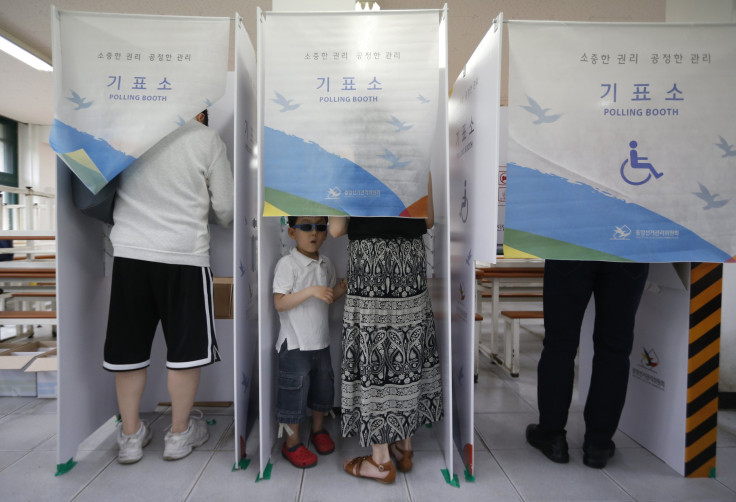South Korea Poll Offers Fresh Mandate For Park To Speed Reform

(Reuters) - South Korean President Park Geun-hye was handed a sharp rebuke at regional and mayoral polls for her government's handling of April's ferry disaster but an official said on Thursday her party can now work to rebuild trust in the grieving nation.
Park's conservative Saenuri Party still managed a strong enough showing in Thursday's nationwide polls to push ahead with plans to reform bureaucracy and boost the economy. The elections were the first vote since more than 300 people, most of them school children, were killed when the ferry Sewol sank.
The ferry disaster sidelined traditional regional campaign issues such as jobs, education and welfare and focused attention on the perceived failure by Asia's fourth largest economy on such basics as enforcing safety standards.
However, the results suggested voters were at least willing to let Park's government move on from South Korea's worst maritime disaster in 20 years.
"We accept this as an opportunity for President Park Geun-hye to accomplish the duty of nation rebuilding," senior Saenuri Party official Lee Wan-koo said on Thursday.
Park came to power last year after pledging to introduce greater innovation to spur the next stage of growth and to keep North Korea in check, while also restarting dialogue with the South's unpredictable and heavily armed neighbor.
Saenuri Party candidates won eight of the 17 races for major city mayors and provincial governors, including battleground races in the city of Incheon and Gyeonggi province near the capital, Seoul, the National Election Commission said.
However, liberal Seoul Mayor Park Won-soon retained his post - seen by some as a springboard to the presidency - by more than 10 percentage points over his conservative rival.
Park's approval rating fell sharply from 61 percent to 46 percent in the days after the April 16 ferry disaster - her lowest since coming to power 16 months ago - and show little sign of improving.
However, polls by Gallup Korea in late May suggested more than 40 percent of voters still support the Saenuri Party. Only 28 percent said they supported the main opposition New Politics Alliance for Democracy (NPAD).
The opposition was careful not to campaign too aggressively on the government's handling of the disaster because distrust of politicians has increased across the board.
The Saenuri Party staked its campaign on Park's pledge to reform government bureaucracy and improve safety oversight, arguing that the ferry disaster presented an opportunity for change.
"Everyone is saying safety and safety but we shouldn't just focus on that," said political scientist Lee Chung-hee of Hankook University of Foreign Studies.
"Corruption and injustice, inadequate systems, these are the things that we need to fix so that we can deal with problems that can potentially destroy this country, like another Sewol disaster or a financial crisis or problems with nuclear power plants," Lee said.
The Sewol sank on a routine trip south from the port of Incheon to the holiday island of Jeju. It was heavily overloaded and was traveling too fast while making a turn.
Many of its crew abandoned ship while the children, students from a high school on Seoul's outskirts, waited in their cabins as they had been instructed.
© Copyright IBTimes 2024. All rights reserved.





















